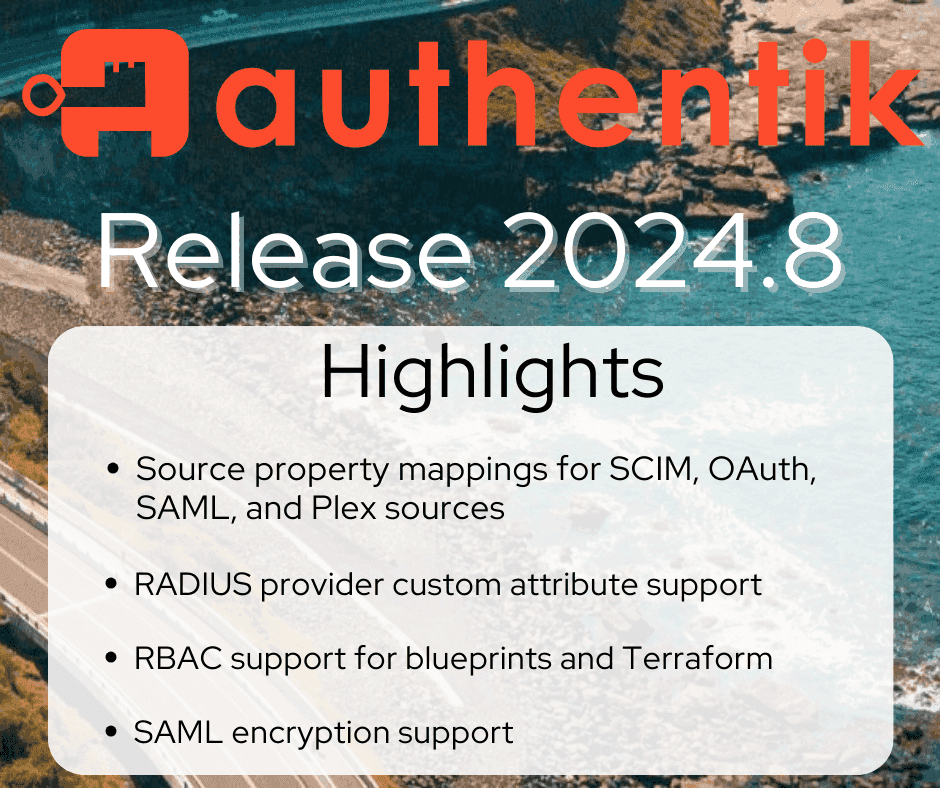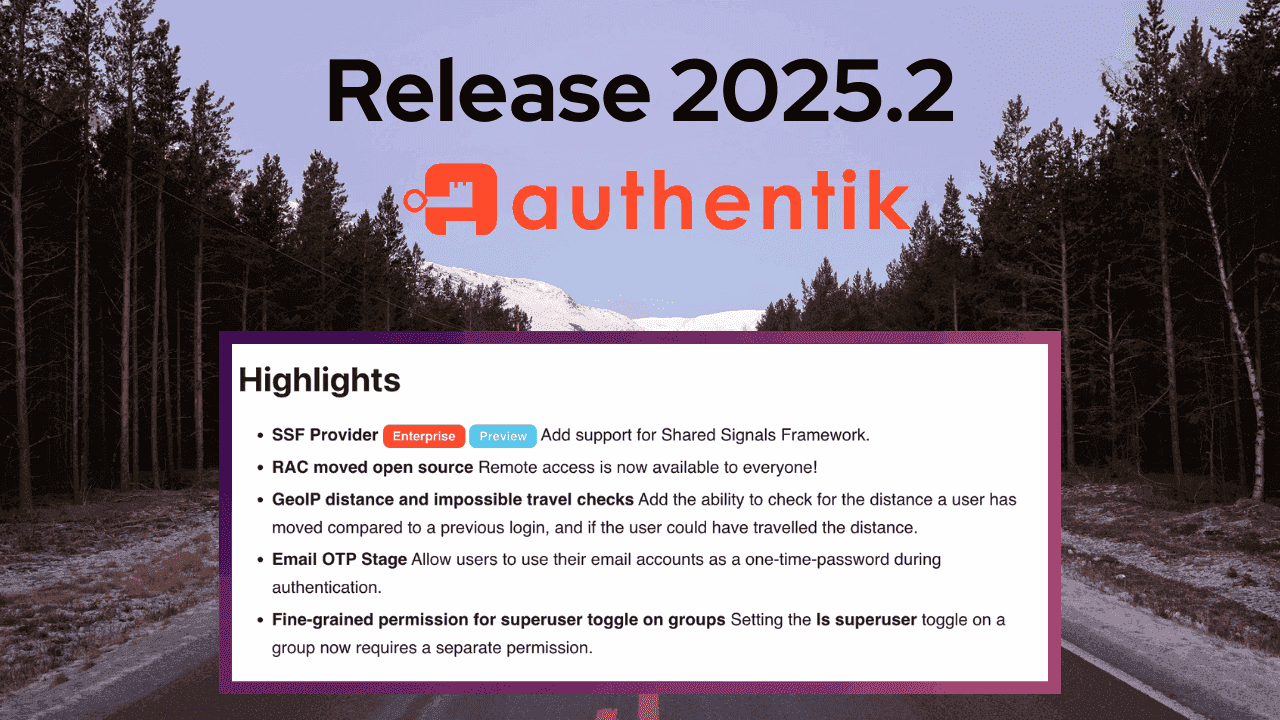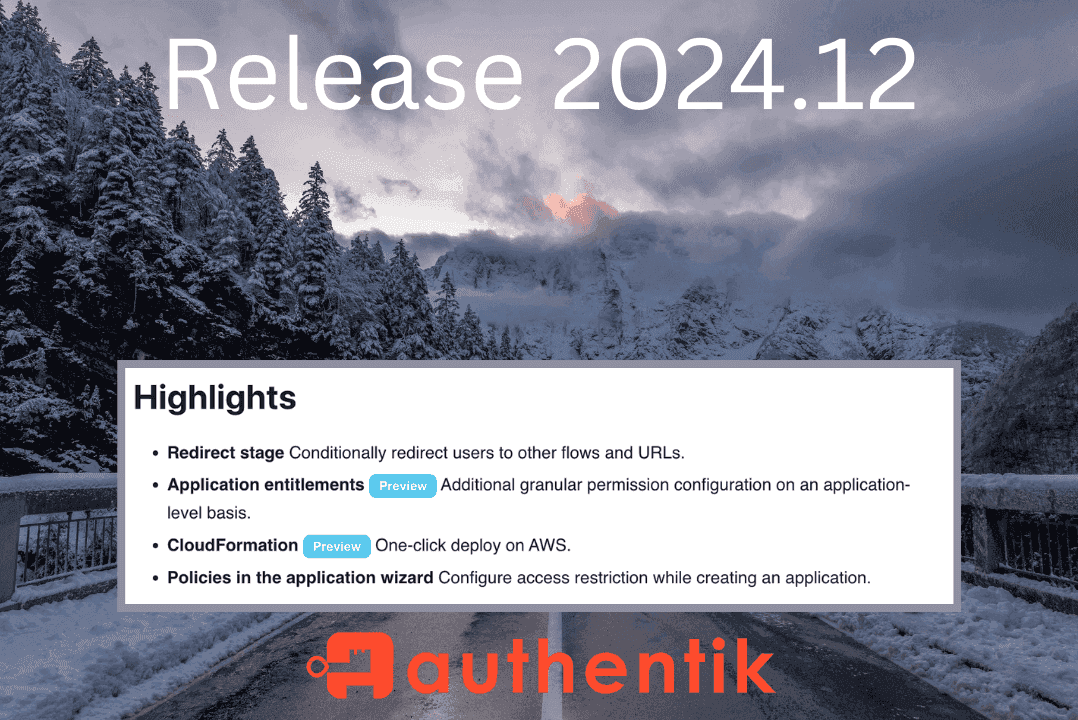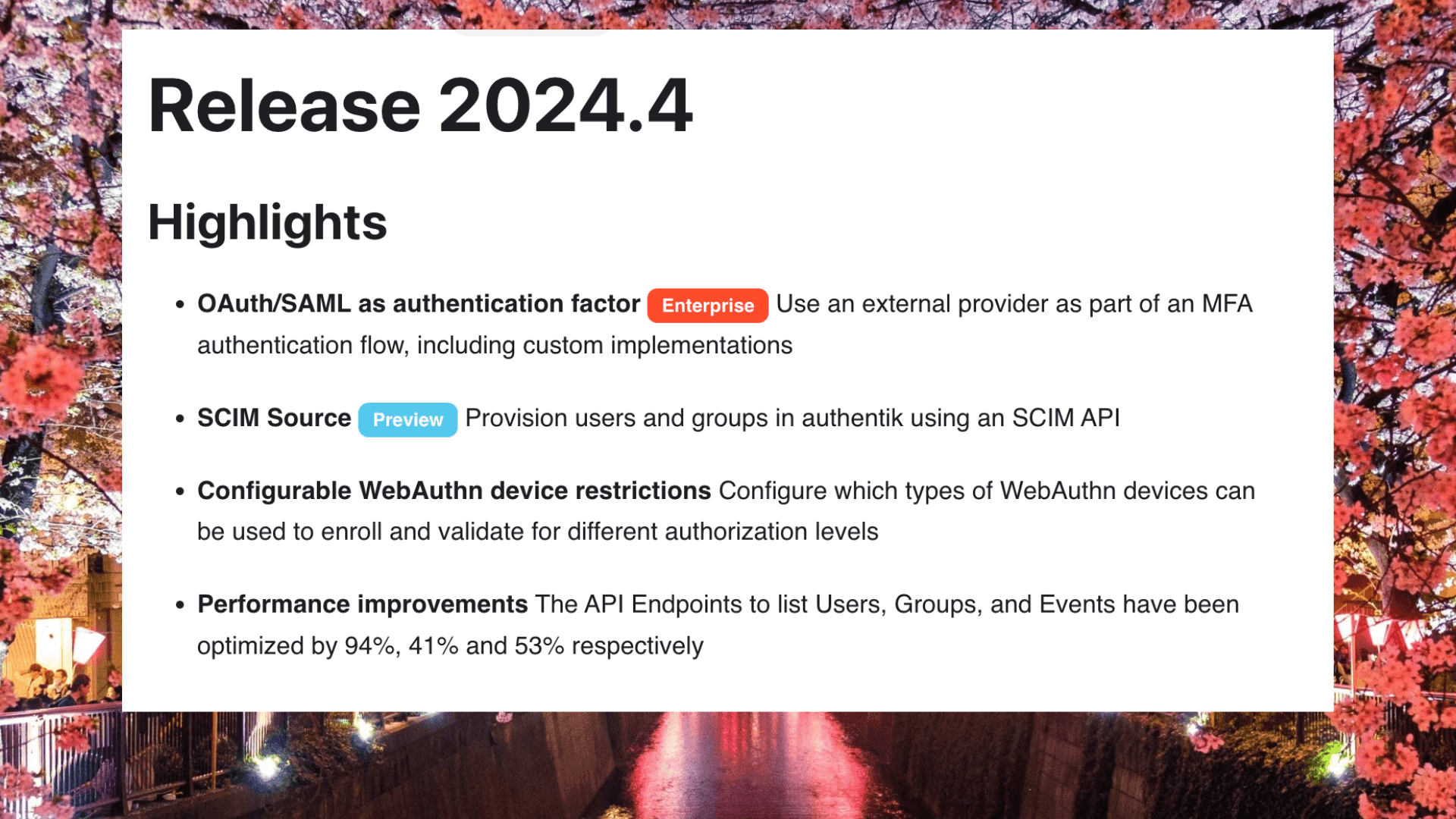We are pleased to share our latest version, authentik 2024.8. This release adds substantial new support for property mappings for both providers and external sources, RBAC permissions management via blueprints and Terraform, a new policy for GeoIP, as well as several UX and DX enhancements.
Highlights
One of the many highlights that we are most excited about is the new support for using property mappings to manage user data from external sources (such as Google and GitHub). You can configure property mappings to define how the external source's user credentials and data are synced with authentik, where to store (or not store!) data, and other specific behaviour. Groups can be synced from all sources that provide group information.
Release 2024.8 also includes support for custom attributes with the RADIUS provider. By adding custom, vendor-specific attributes to the RADIUS response packets, based on the exact user who is authenticating, you can more fully integrate RADIUS into network infrastructure.
Another new feature in version 2024.8 is SAML encryption support for both source and provider, which encrypts the information of in-flight assertions.
For those who rely on automation, this release provides RBAC support for blueprints and Terraform; Permissions can now be assigned and automated using both blueprints and Terraform.
We have also simplified the LDAP provider search permissions; you no longer need to create a special group and assign users to it to define who can search the full directory. Now you need only assign the permission Search full LDAP directory to the LDAP provider. When you upgrade to 2024.8, authentik automatically migrates your old search groups to the new RBAC-based method.
There is a new GeoIP-based policy for simple GeoIP lookups, such as country or ASN matching. For a more advanced GeoIP lookup, use an Expression policy.






